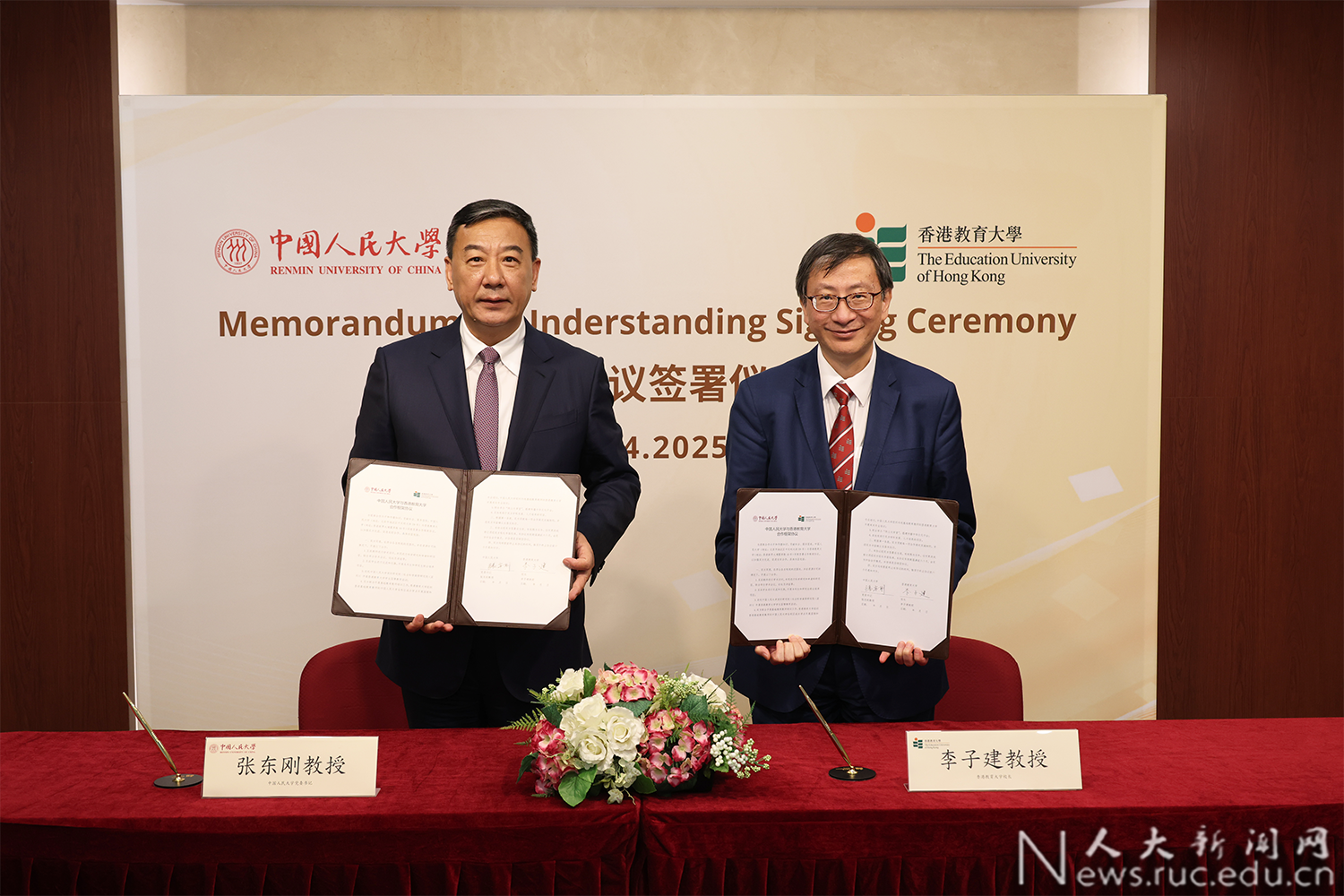Renmin University of China (RUC) and the Education University of Hong Kong (EdUHK) officially signed a comprehensive cooperation framework agreement on April 15, marking a new chapter in academic collaboration between the two institutions. The agreement aims to establish a long-term university-level partnership focused on academic exchange, joint student programs, education of national condition and cultural collaboration.

A delegation from RUC, led by Zhang Donggang, Chair of the University Council, visited EdUHK for the signing ceremony. Zhang Donggang and John Lee, President of EdUHK, signed the agreement on behalf of their respective universities.
Under the newly signed agreement, both sides will facilitate faculty exchanges, launch joint student exchange programs, and co-host education activities for EdUHK students through the Shenzhen Research Institute of RUC. The two universities will also collaborate on teacher training for basic education.
John Lee warmly welcomed the RUC delegation, noting that the visit coincided with China's 10th National Security Education Day. He emphasized that the shared missions of the two institutions lay a strong foundation for meaningful partnership.
“This is a promising day,” said John Lee, “I look forward to our cooperation deepening patriotic education and strengthening students' understanding of the vitality of ‘One Country, Two Systems.’”
Zhang Donggang praised EdUHK as a forward-thinking institution that has contributed significantly to higher education and social development. He emphasized that RUC highly values this strategic partnership and expressed confidence that the collaboration would promote cultural exchange, innovation in talent development, and high-quality education.
He also highlighted the importance of deepening cooperation in education of national condition, fostering shared patriotic values, and advancing platforms like the “Shangong Lecture Hall” to enhance cultural ties between mainland China and Hong Kong.
This new partnership is expected to contribute not only to the advancement of higher education in both regions but also to the broader development goals of Hong Kong and the Greater Bay Area.


